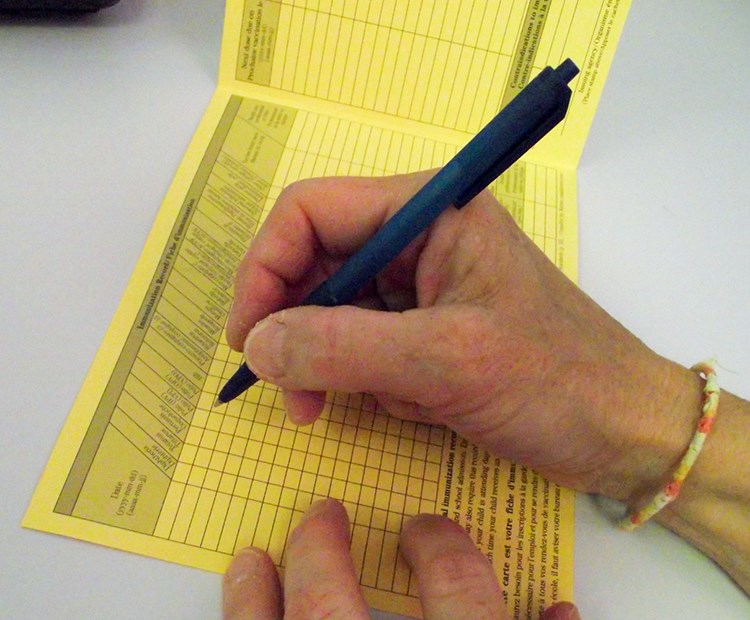Susan Roberts
Recently I encountered a woman who needed to enrol her daughter in a day-care program.
The centre, like a school, requires parents to provide up-to-date vaccination cards for the child being admitted.
But the mother told me: “I just went out into the car, dated and check-marked all the necessary vaccines, and walked back into the nursery with the completed immunization record.”
The daughter had been vaccinated, the mother said, but she kept forgetting to take the immunization record to the doctor’s office.
So, in the end, the girl was registered at the nursery school using a document that was easily falsified.
Recently, a six-year-old boy from Grey-Bruce was rushed to London hospital suffering from a rare case of tetanus. The boy hadn’t received a tetanus booster, despite guidelines that require children to be vaccinated at four to six years of age.
Immunization records are meant to protect us from preventable diseases. Yet the tracking system so critical to public health is clearly riddled with gaps.
Vaccinations can be received at doctor offices, public health units, and more recently, at pharmacies. But it’s up to parents to keep track of them on the yellow immunization cards, said Erin Courtney, supervisor of health protection at Lambton Health Public Health.
“For children, it is your responsibility as a parent or guardian to notify Lambton Public Health of any vaccinations your child has received at your health care provider's office,” she said.
All reported immunizations are kept in a provincial registry database called Panorama, she added, “a secure provincial immunization data warehouse established for all Ontarians, to replace the current paper-based ‘yellow card.’”
But who has the role of messenger of the immunization record – the patient or the caregiver? Anyone can add a checkmark and initial the record, which is then recorded at the provincial registry.
If the girl who was registered for daycare didn’t have her shots, the mother could still have checked off the boxes and submitted the record.
Courtney said the accuracy of immunization records can be verified by the professional who administers the vaccine, and he or she would keep a record of lot numbers for all vaccinations.
But who calls to check the accuracy of the immunization records? Not the health units. Not the daycares.
The Ontario health ministry says it requires “proof of immunization for communicable diseases to help further protect children from vaccine-preventable diseases and reduce the risk of disease outbreaks in schools.”
Proof?
All the day care received was boxes checked off on a card. Who checked to see whether the vaccinations of the child afflicted with tetanus were up to date?
I would suggest the record of our immunizations should be transferred directly to provincial database by the person giving the shot, without it having to be carried by hand - or horse and buggy - to the health unit.
Susan Roberts is a mental health worker in London who lives in Sarnia and loves to write about the community.
